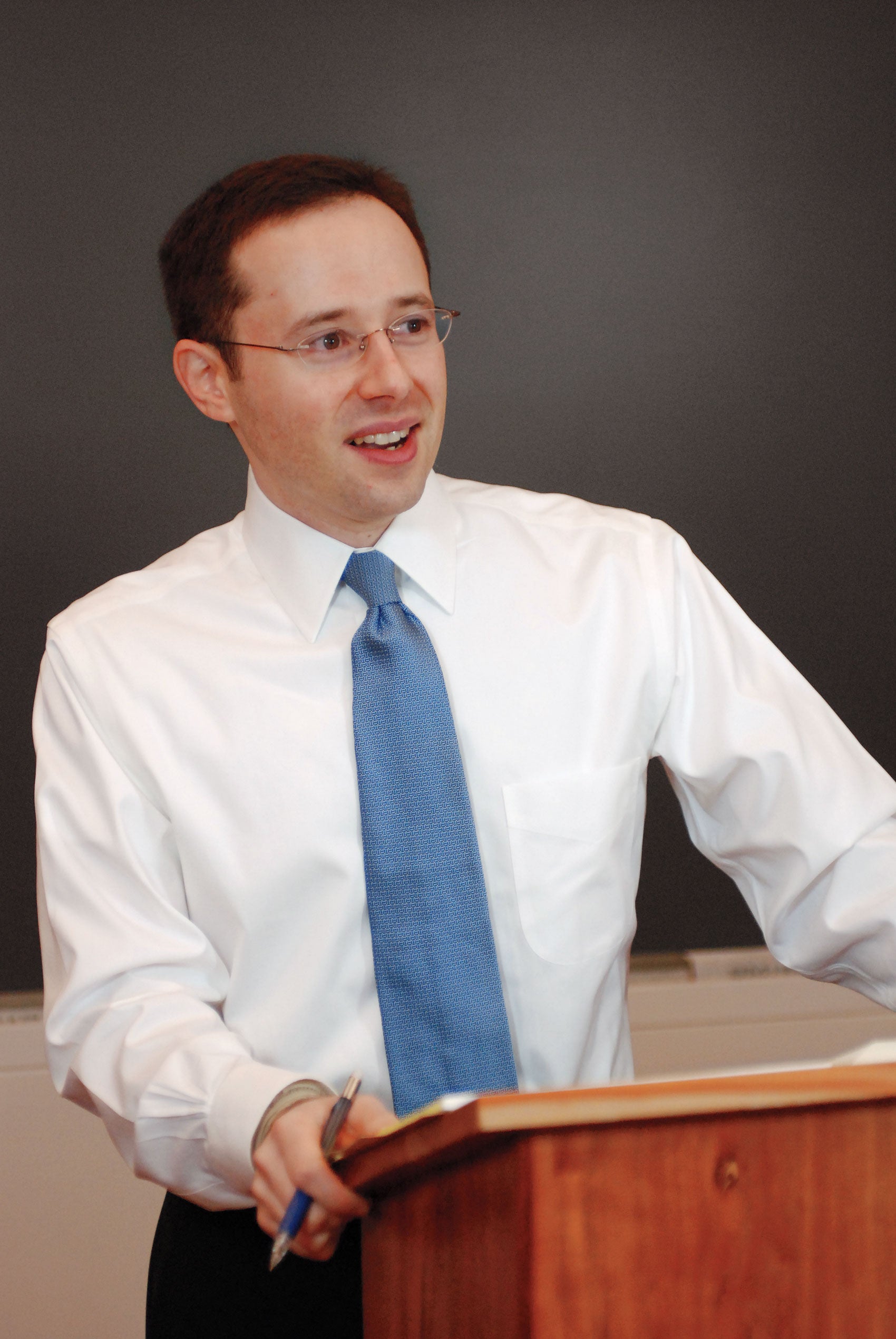Robert Sitkoff, the John L. Gray Professor of Law at HLS, gave this year’s Joseph Trachtman Memorial Lecture to the annual meeting of the American College of Trust and Estate Counsel in Rancho Mirage, California in March.
The College is the premier professional association of American trusts and estates lawyers.
In his lecture, titled “The Quiet Revolution in American Trust Law: An Empirical Assessment,” Sitkoff said that the last 20 years have seen a revolutionary updating of trust law, including major changes in revocable trust and trust investment law, perpetuities, asset protection and business trusts.
Sitkoff split the changes into two categories: “top-down,” driven by the Restatements and Uniform Acts, and “bottom-up,” reflecting lobbying by local bankers and lawyers. “The top-down reforms tend to reflect academic and elite practitioner views,” he said. “The bottom-up reforms tend to cater to donor preferences and have led to ‘a drift toward greater dead hand control.’”
Sitkoff presented a synthesis of his empirical studies on the effects of these various trust law reforms. In brief, he said, the effects have been profound. “Billions of dollars in trust assets have moved from one state to another, or been reallocated from one form of investment to another, as a result of these law reforms.”
Sitkoff’s lecture was based on a series of ongoing research projects, which will form the core of a book he is writing with Professor Max M. Schanzenbach of Northwestern University, “Lawyers, Banks, and Money: The Quiet Revolution in American Trust Law,” to be published by Yale University Press.
Previous Trachtman Lecturers include Justice Sandra Day O’Connor; leading trusts and estates academics John Langbein ’68 of Yale Law School, Lawrence W. Waggoner of the University of Michigan Law School and the late A. James Casner of Harvard; former Executive Director of Amnesty International William F. Schulz; and Princeton economist Burton G. Malkiel.
